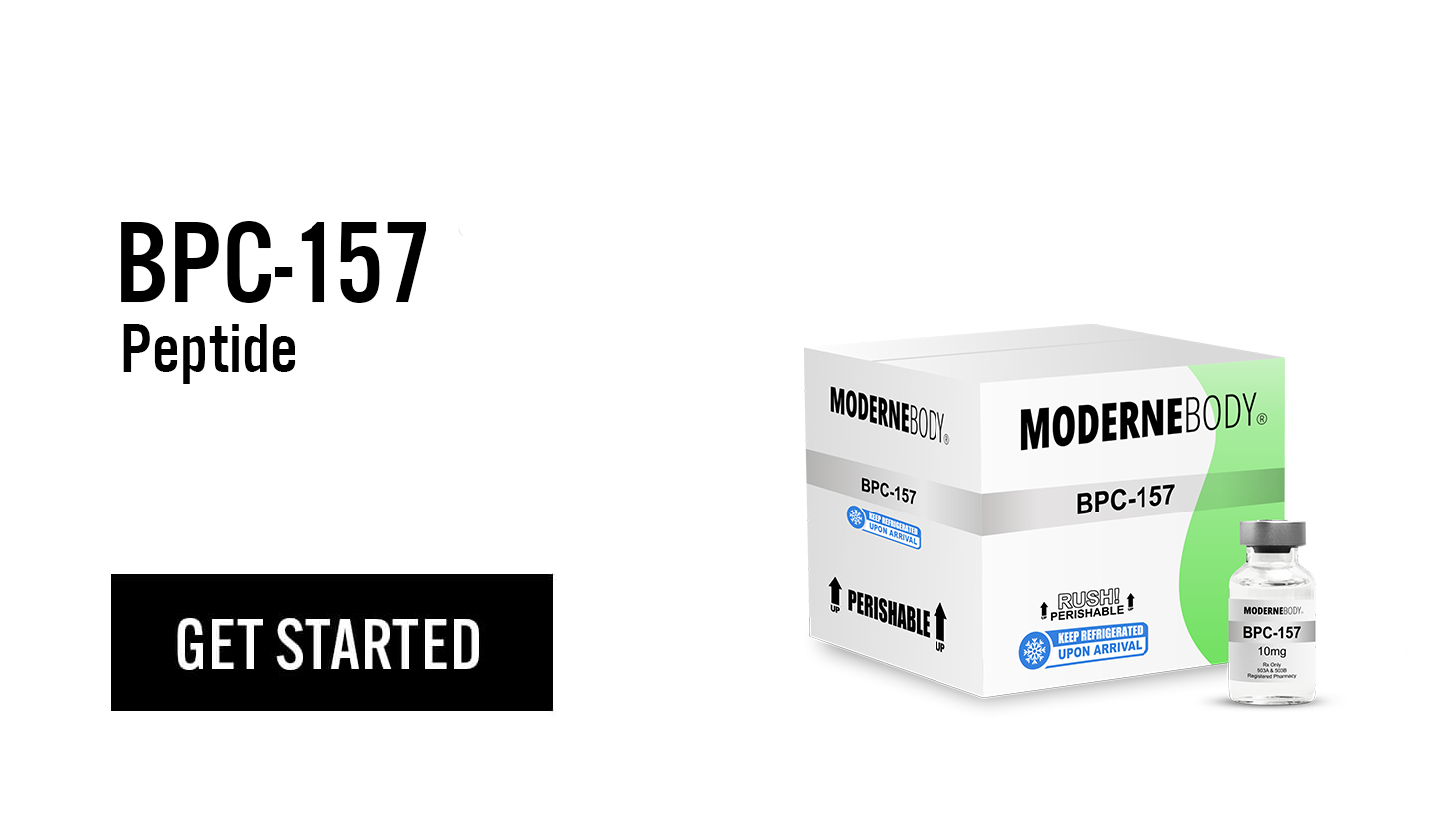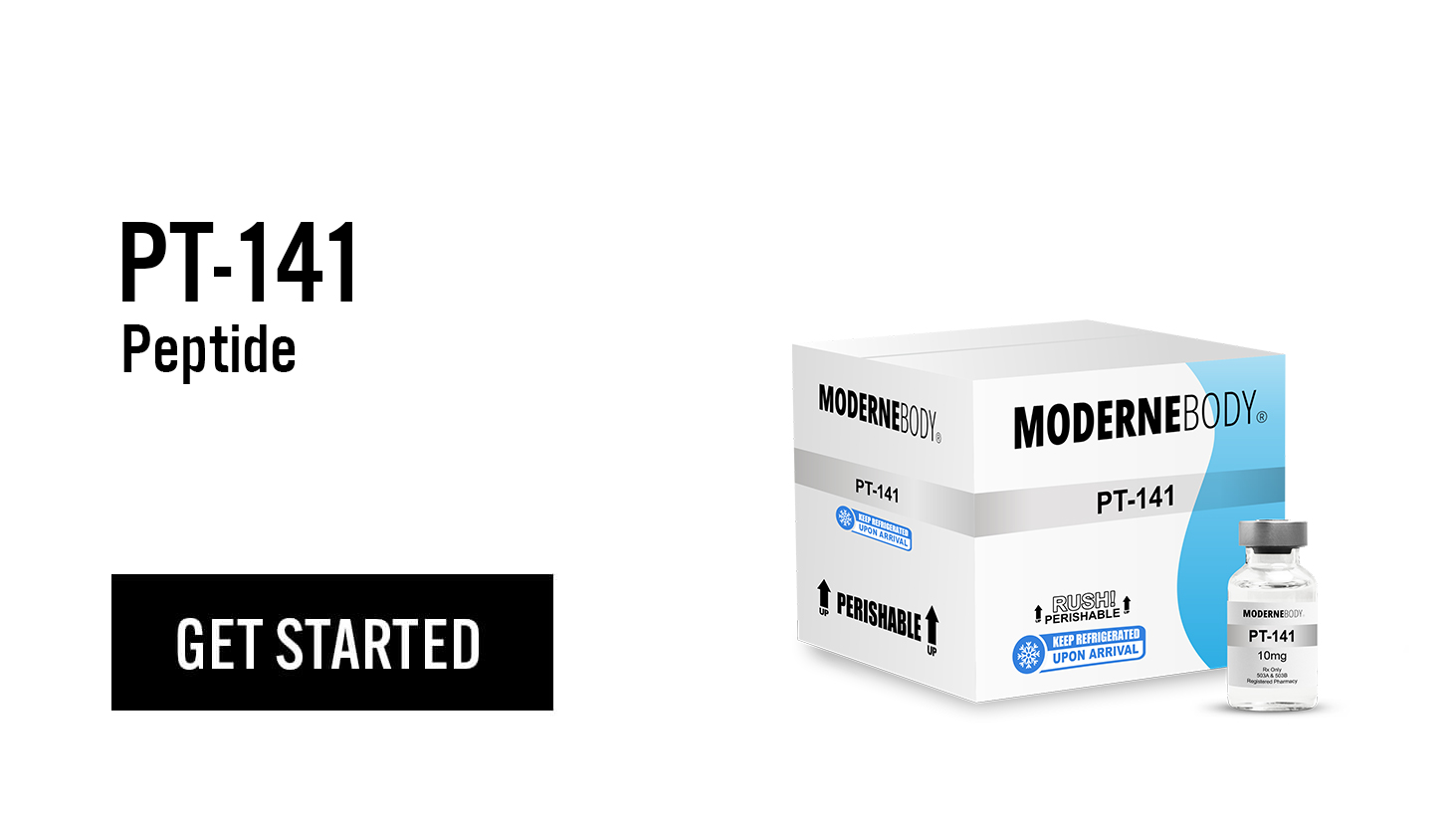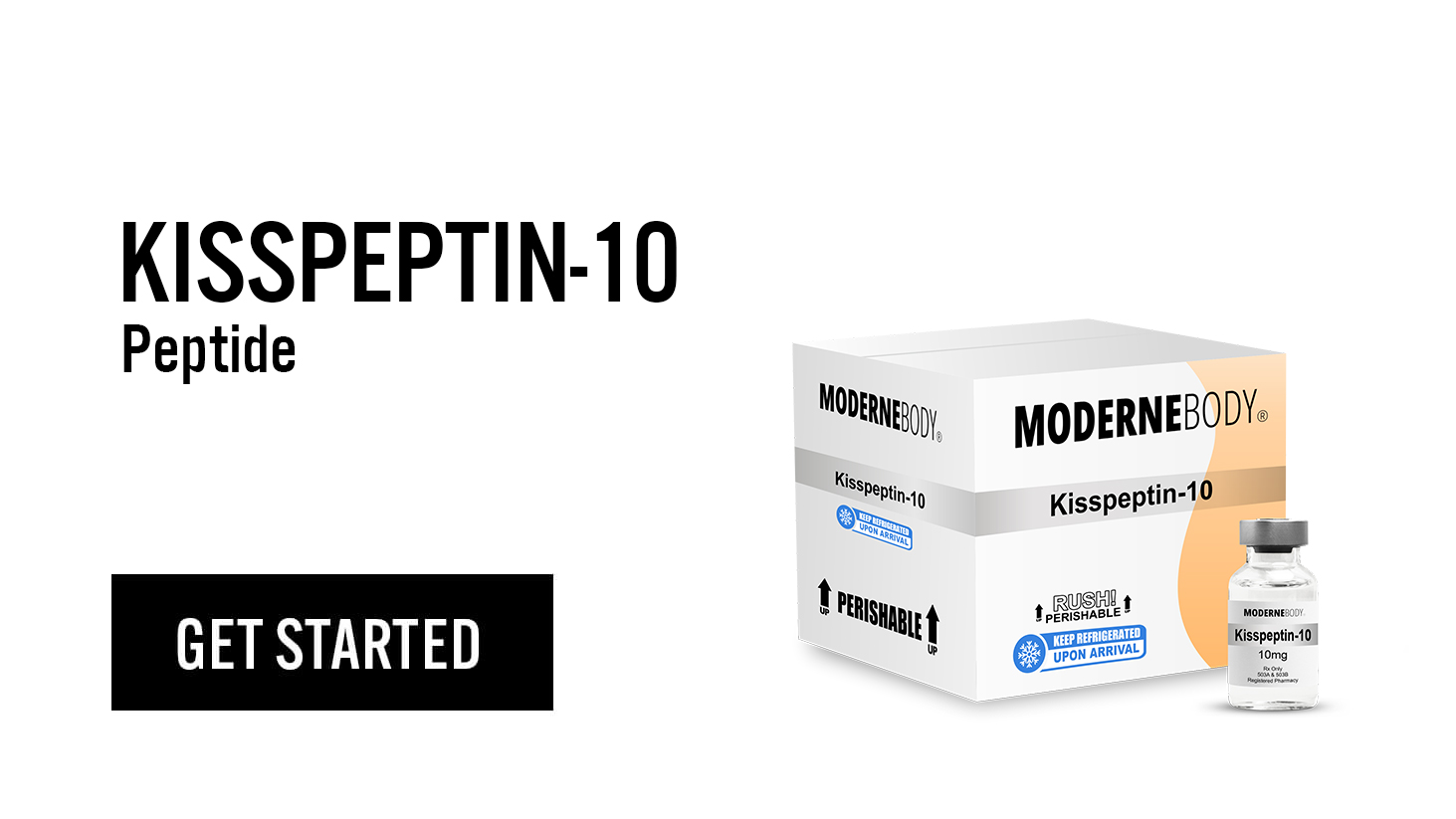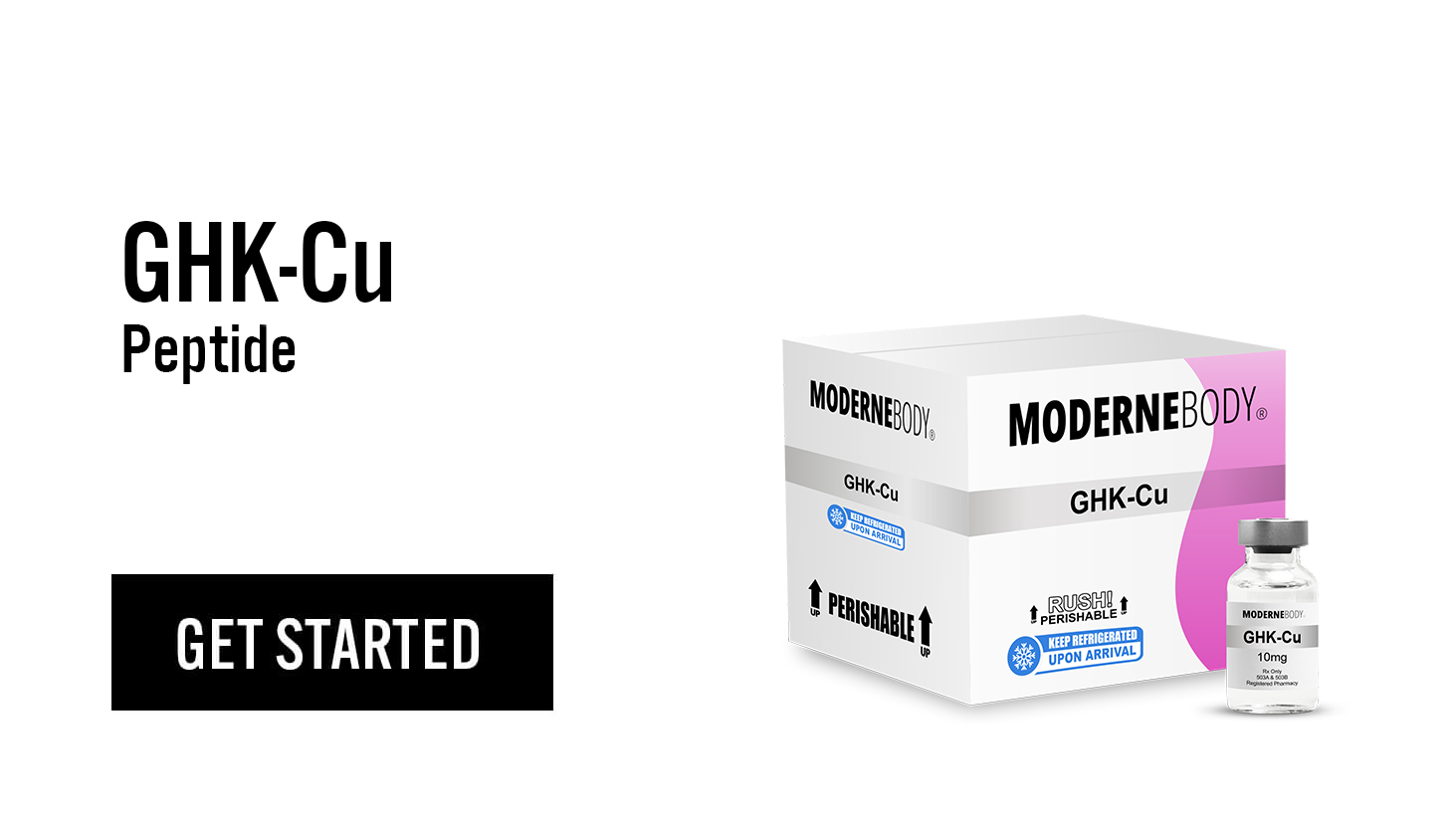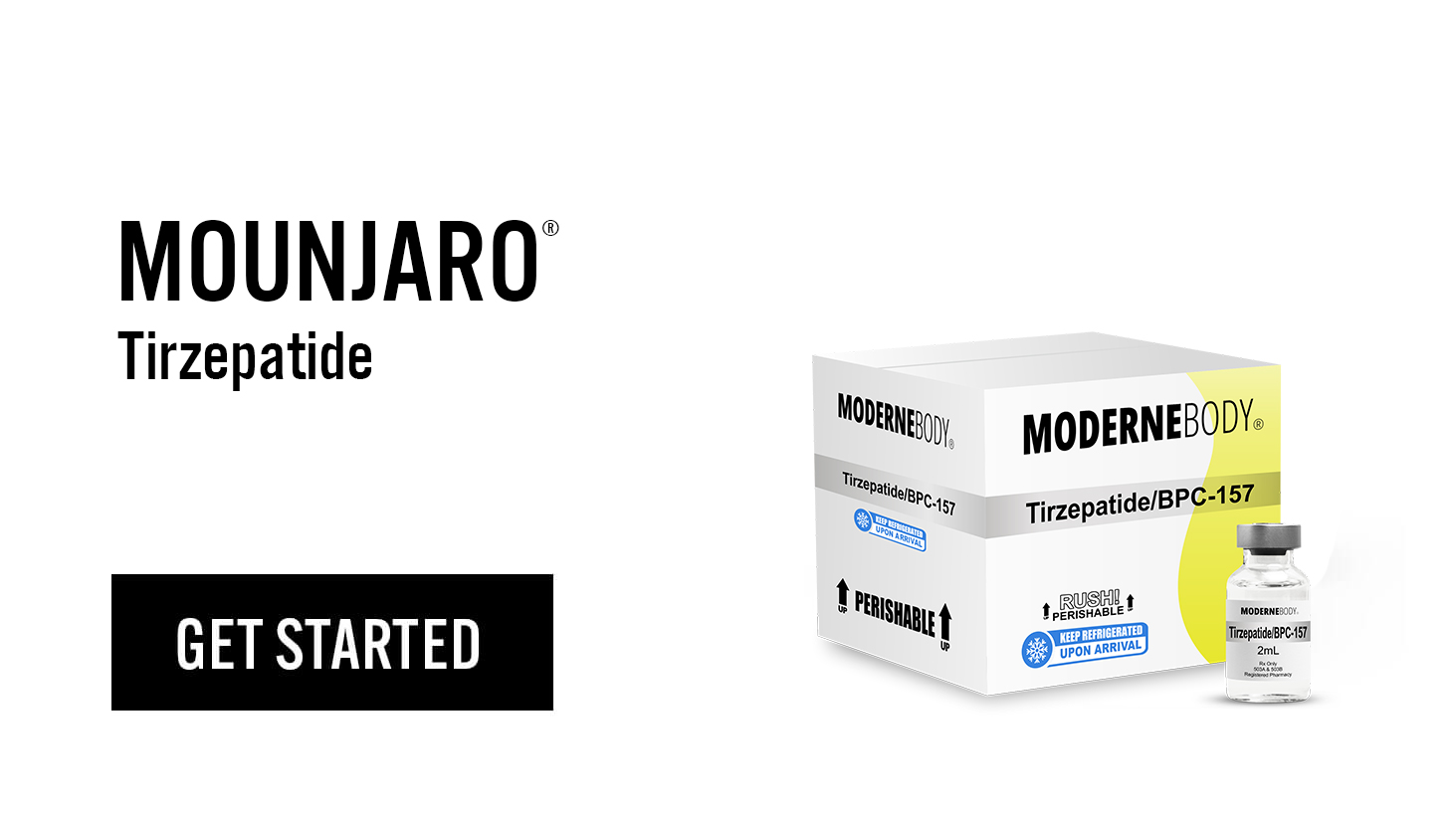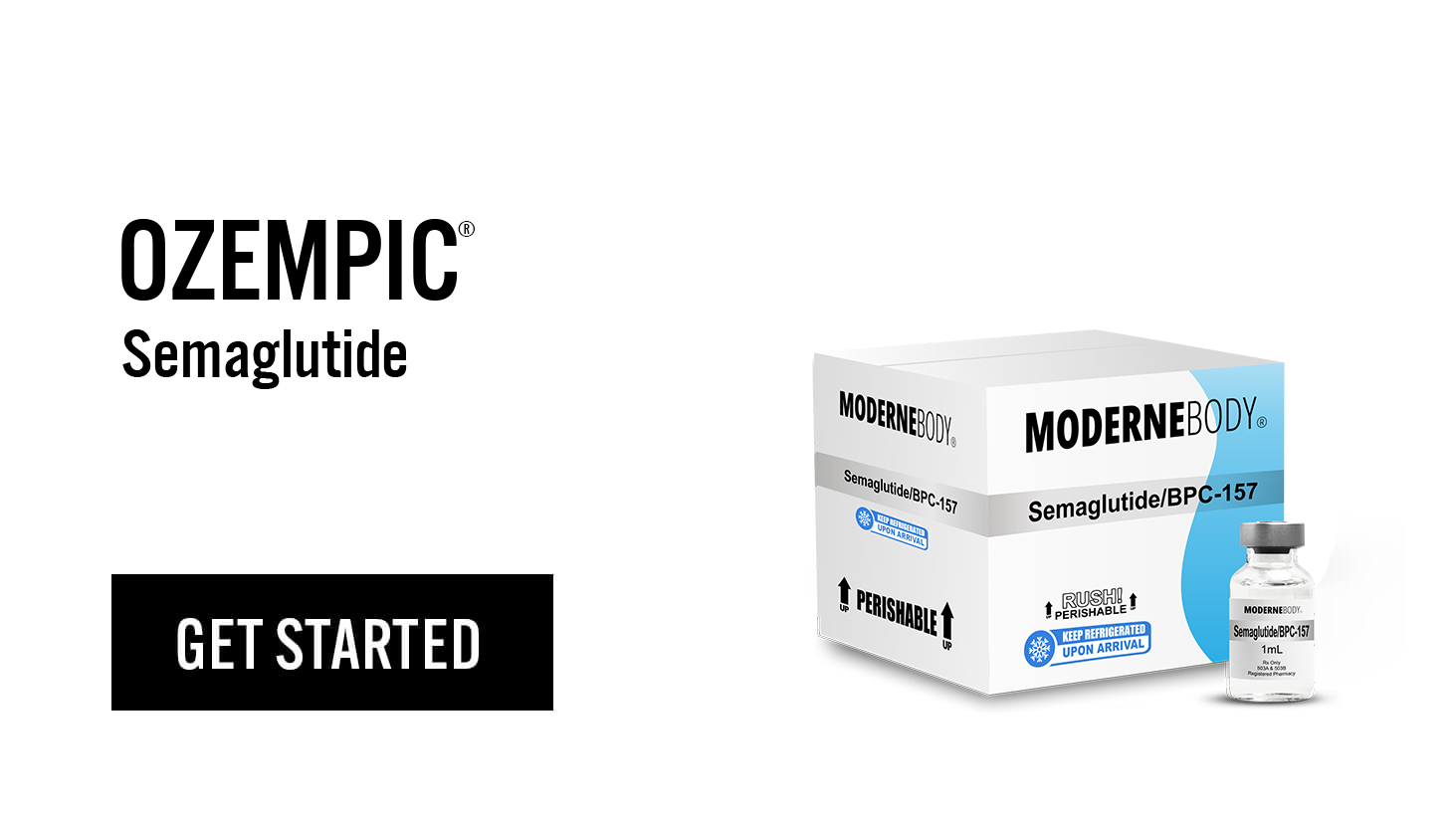PEPTIDES with
Moderne Body
+ Explore all of our stand-alone peptides as well as some of our blends, with more options coming soon
+ Our products are sourced exclusively from licensed pharmacies, guaranteeing safety and peace of mind
+ Our peptides and peptide programs are backed by dedicated healthcare providers, ensuring your success
+ Your wellness journey is conveniently from home with any of our programs
Safety info: Before starting any of our peptides and/or peptide programs, we encourage you to explore all of our program options mentioned and also take the time to review our comprehensive safety warnings page for essential guidelines and precautions See more serious warnings & safety info

Peptides that work
Discover the multifaceted benefits of our wellness peptides
Peptides are often regarded as “new” due to advancements in research, evolving regulations, growing consumer demand, and an expanding knowledge base, all of which have contributed to their recent popularity in the wellness industry.
why we love BPC-157:
+ Addresses multiple issues in the body
+ Significant wellness results
+ Ongoing provider care
+ Weekly curriculum email
why we love PT-141:
+ Sexual health is important
+ Significant results are reported
+ Ongoing provider care
+ Weekly curriculum email
why we love Kisspeptin-1o:
+ Great for reproductive functions
+ Menstrual regulation
+ Ongoing provider care
+ Weekly curriculum email
why we love Mounjaro®:
+ Access to Mounjaro® (Tirzepatide)
+ Significant weight loss results
+ Ongoing provider care
+ Weekly curriculum email
why we love ozempic®:
+ Access to Ozempic® (Semaglutide)
+ FDA approved – weight loss
+ Ongoing provider care
+ Weekly curriculum email
why we love Wegovy®:
+ Access to Wegovy® (Semaglutide)
+ FDA approved – weight loss
+ Ongoing provider care
+ Weekly curriculum email
moderne body peptides offer a fresh perspective on familiar issues, providing a new solution to common problems
peptides 101
revolutionary medication
What is a peptide?
A peptide is a short chain of amino acids, typically consisting of fewer than 50 amino acids. Amino acids are the building blocks of proteins, and when they are linked together through peptide bonds, they form peptides. Peptides play crucial roles in various biological processes and can have specific functions in the body, such as signaling molecules, enzymes, or structural components. They can be naturally occurring or synthesized for various applications, including pharmaceuticals, skincare, and nutritional supplements.
Why am I just hearing about peptides?
Peptides may appear new to some individuals because of several reasons:
Advancements in Research and Technology: Recent advancements in scientific research methods and technologies have enabled scientists to explore the potential benefits and applications of peptides in greater detail. As research progresses, new discoveries and applications of peptides continue to emerge.
Evolving Regulatory Landscape: Regulations surrounding peptides and their use in different industries, including wellness, are continuously evolving. Approval processes for peptides as therapeutic agents or dietary supplements can vary from country to country. As regulations develop and adapt to new scientific findings, it can impact the availability and awareness of peptides.
Growing Consumer Demand: Increasing consumer interest in natural and holistic approaches to health and wellness has created a market for innovative products. Peptides, with their potential health benefits and versatility, have gained attention as a sought-after option among consumers. The rising demand for peptides has propelled the development of new formulations, products, and marketing strategies in the wellness industry.
Expanding Knowledge Base: Ongoing scientific research and increased understanding of peptides have led to the discovery of new peptides with unique properties and potential applications. As the knowledge base expands, researchers can explore different peptide sequences, modifications, and delivery methods to optimize their effects. This continuous discovery contributes to the perception that peptides are relatively new and exciting in the field.
While peptides may be considered "new" in terms of widespread recognition and commercial availability, they have been studied and utilized in scientific and medical research for several decades. As research continues and technology advances, more is expected to be uncovered about the potential benefits and applications of peptides in the future.
Are peptides safe?
Peptides can generally be considered safe when used appropriately and under proper guidance.
-
Naturally Occurring in the Body: Many peptides naturally exist in the human body and perform essential functions, making their supplemental use generally well-tolerated.
-
Selective and Targeted Effects: Peptides often exhibit selective and targeted effects on specific receptors or cellular processes. This characteristic allows for more precise modulation of biological pathways, minimizing the risk of unintended systemic effects or widespread disruption.
-
Rigorous Research and Testing: Peptides intended for therapeutic or clinical use undergo rigorous research and testing processes to assess their safety and efficacy. Preclinical evaluations and clinical trials help determine proper dosages, potential side effects, and adverse reactions.
-
Short Half-Life: Peptides typically have a short half-life, meaning they are metabolized and eliminated from the body relatively quickly. This characteristic reduces the risk of long-term accumulation or excessive build-up, minimizing the potential for adverse effects.
-
Personalized Approach: Peptides can be tailored to individual needs and goals under the guidance of healthcare professionals. Factors such as medical history, current health status, and potential interactions with other substances are taken into account, ensuring a safer and more effective peptide regimen.
It's important to note that individual responses to peptides may vary, and some individuals may experience side effects or allergic reactions. Adhering to proper dosage guidelines, sourcing peptides from reputable suppliers, and consulting with a healthcare professional are crucial steps to ensure the safe use of peptides.
What kind of things can peptides help with?
Peptides can potentially help with a wide range of health and wellness concerns. Here are some areas where peptides have shown promise:
-
Recovery and Regeneration: Certain peptides, such as growth hormone-releasing peptides (GHRPs) or collagen peptides, have been studied for their ability to enhance tissue repair, muscle growth, and overall recovery. They may aid in post-workout recovery, injury healing, and general tissue regeneration.
-
Anti-Aging and Skin Health: Peptides like palmitoyl pentapeptide (Matrixyl) and copper peptides have been researched for their potential to stimulate collagen production, improve skin elasticity, and reduce the appearance of wrinkles and fine lines. They may contribute to a more youthful and vibrant complexion.
-
Immune System Support: Peptides, such as thymosin alpha-1 or beta-glucan peptides, have been investigated for their immune-modulating properties. They may help boost immune response, enhance immune cell activity, and support overall immune function.
-
Cognitive Function Enhancement: Nootropic peptides and neuropeptides have been explored for their potential to improve cognitive function, memory, focus, and mental well-being. They may assist in enhancing mental clarity and performance.
-
Metabolic Health: Peptides like ghrelin analogs or glucagon-like peptide-1 (GLP-1) analogs have been studied for their effects on metabolism and appetite regulation. They may aid in weight management, appetite control, and glucose regulation.
-
Sleep and Stress Management: Certain peptides, such as melanocyte-stimulating hormone (MSH) analogs or oxytocin, have been investigated for their potential effects on sleep quality, stress reduction, and mood enhancement.
It's important to note that research is still ongoing, and the specific effects and applications of peptides may vary depending on the type of peptide and individual factors. Before incorporating peptides into your routine, it is recommended to consult with a healthcare professional or a knowledgeable expert to ensure they are suitable for your specific needs and goals.
What are the most common peptides?
-
Growth Hormone-Releasing Peptides (GHRPs): GHRPs, including GHRP-6, GHRP-2, CJC-1295, and Ipamorelin, stimulate the release of growth hormone, aiding in muscle growth, recovery, and overall wellness.
-
Collagen Peptides: Collagen peptides, such as Types I, II, and III, support skin health, joint function, and promote the strength and elasticity of connective tissues.
-
Melanotan Peptides: Melanotan peptides, specifically Melanotan 2 (MT-2), stimulate melanin production, leading to skin pigmentation and tanning effects.
-
BPC-157: BPC-157 is a peptide with potential regenerative properties that can aid in tissue repair, reduce inflammation, and support overall recovery.
-
PT-141: PT-141 is a peptide primarily used for its potential effects on sexual health and function, assisting in treating conditions like erectile dysfunction.
-
Thymosin Alpha-1: Thymosin Alpha-1 is an immune-modulating peptide that supports immune function and enhances immune response.
-
Ghrelin Analogues: Ghrelin analogues, such as GHRP-6 and Ipamorelin, can help regulate appetite, boost metabolism, and potentially aid in weight management.
-
GLP-1 Analogues: GLP-1 analogues, including liraglutide and exenatide, are used to manage weight and treat conditions like obesity by reducing appetite and slowing down digestion.
-
Melanotan II (MT-II): Apart from its tanning effects, Melanotan II (MT-II) may have appetite-suppressing properties, potentially aiding in weight loss efforts.
-
Weight Loss Peptides: Peptides like CJC-1295 and Ipamorelin, when combined, can support fat loss, increase lean muscle mass, and enhance metabolism.
Remember, it's important to consult with a healthcare professional or an expert before considering the use of peptides to ensure they are suitable for your specific needs and goals
Are peptides used in preventative medicine?
Yes, peptides can have a preventative role in maintaining health and preventing certain conditions. Here's how peptides can be used preventatively:
-
Aging and Skin Health: Peptides like collagen peptides or certain antioxidant peptides can be used preventatively to support skin health and delay signs of aging. They promote collagen production, protect against oxidative stress, and help maintain skin elasticity, reducing the appearance of wrinkles and preventing premature aging.
-
Immune System Support: Certain peptides, such as thymosin alpha-1 or immune-boosting peptides, can help support and modulate the immune system. They enhance immune response, strengthen defense mechanisms, and maintain overall immune health, potentially preventing infections.
-
Cognitive Function: Nootropic peptides or neuropeptides have the potential to support brain health and cognitive function preventatively. They enhance focus, memory, and mental well-being, potentially reducing the risk of age-related cognitive decline.
-
Metabolic Health: Peptides like ghrelin analogues or GLP-1 analogues have preventive effects on metabolic health. They regulate appetite, improve insulin sensitivity, and promote weight management, potentially preventing obesity, metabolic syndrome, and related conditions.
It's important to note that while peptides may have preventative potential, their effectiveness can vary depending on individual factors and proper usage. It is recommended to consult with a healthcare professional or a knowledgeable expert to determine the most appropriate peptides and dosages for your specific preventative goals.

